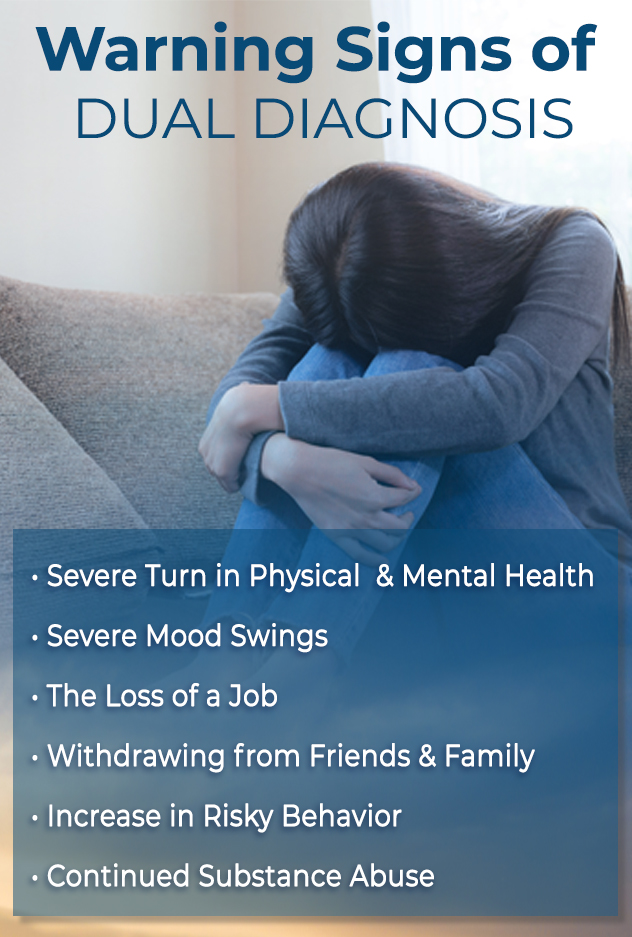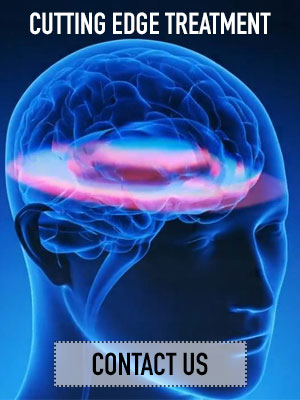
Dual Diagnosis Treatment
Co-occurring Disorders

Understanding the Interplay Between Mental Health and Addiction
It is a natural human impulse to seek relief from pain, whether it’s physical, mental, or emotional. For clients in high-stress professions and athletes, who often endure high levels of physical stress and public scrutiny, managing this pain can sometimes lead to self-medicating behaviors. It’s not uncommon for individuals suffering from mental health issues such as depression, anxiety, or post-traumatic stress disorder (PTSD) to turn to alcohol or drugs as a form of relief.
Moreover, the chaotic cycle of addiction can exacerbate or even trigger bouts of depression, anxiety, and impulsivity, leading to increasingly destructive behavior. Whether it’s a battle with depression that led to an addiction, or substance abuse that has resulted in mental health challenges, the complexities of these conditions are deeply intertwined.
At Pure Recovery, we specialize in dual diagnosis treatment, understanding that lasting recovery can only be achieved when both mental health and addiction are diagnosed and treated simultaneously. Our integrated approach to mental health and addiction recovery addresses both aspects together, providing a more comprehensive and effective treatment plan.
For clients, who may face unique pressures, recognizing and addressing the correlation between depression and substance abuse or anxiety and addiction is crucial. PTSD and drug use can also be particularly challenging, necessitating specialized interventions that consider both the physical and emotional demands placed on high-performance individuals.
Our programs are designed to break the cycle of addiction and provide sustainable strategies for coping with addiction and mental health issues. By treating these intertwined conditions with an integrated methodology, Pure Recovery aims to facilitate a recovery process that allows athletes to return to peak performance and lead a healthier, more balanced life.
Table of Contents
Understanding Dual Diagnosis
The term “Dual Diagnosis” refers to the coexistence of a mental health disorder with a substance use disorder, also known as co-occurring disorders. For athletes, recognizing this condition is crucial as each disorder can significantly worsen the symptoms of the other, impacting not only their health but also their performance and career.
Research indicates that either disorder may develop first. However, it’s the interplay between the two that can lead to a severe decline in personal relationships, family life, and professional achievements if left untreated. This makes dual diagnosis treatment essential for recovery and maintaining peak performance.
At Pure Recovery, we specialize in integrated treatment programs that simultaneously address substance abuse and mental health care. Recovery from dual diagnosis requires a comprehensive approach that considers all aspects of an athlete’s well-being. Our programs provide the necessary support to manage co-occurring disorders, helping athletes regain control over their lives and continue their careers successfully.
With a focus on comprehensive care for athletes, Pure Recovery ensures that each client receives personalized interventions designed to treat their specific conditions, fostering a successful and sustained recovery.
Who Suffers from a Dual Diagnosis?
Despite the stigma often associated with addiction and mental health issues, they are far more common than many realize. The Substance Abuse and Mental Health Services Administration (SAMHSA) reports that approximately 27 million Americans struggle with substance abuse and addiction, highlighting the widespread nature of these challenges.
According to a 2017 survey by the Pew Research Center, nearly half of all Americans have a family member or close friend who has been addicted to drugs, indicating the far-reaching impact of substance abuse. Regarding mental health, it is estimated that 1 in 5 adults, or just under 47 million people (about twice the population of New York), face mental health problems each year, underlining the prevalence of mental health issues in our society.
Common mental health disorders that often co-occur with substance abuse, leading to a dual diagnosis, include:
- Anxiety Disorders
- Depression
- Bipolar Disorder
- Attention Deficit and Hyperactivity Disorder (ADHD)
- Post-traumatic stress disorder (PTSD)
- Personality Disorders
- Traumatic Brain Injury (TBI), which is notably prevalent among athletes.
Statistics show that nearly 8 million people (about half the population of New York) in the U.S. suffer from both mental illness and addiction, with more than half of these individuals being men. This data is particularly significant for athletes who may be at a higher risk due to the pressures and physical demands of their careers.
Treatment for dual diagnosis must address both mental health disorder and substance abuse issue to be effective. For athletes, understanding the prevalence of dual diagnosis and recognizing the common mental health disorders in sports can be the first step towards seeking appropriate care and support.
Call Us: (833) 441-0754
What are the Signs and Symptoms of Dual Diagnosis?

In many cases, athletes may not be aware that they are self-medicating to numb the symptoms of mental illnesses such as depression with drugs and alcohol. Initially, this might seem to alleviate the symptoms, providing temporary relief, but this effect is often short-lived.
Though the symptoms of mental illness can vary widely, there are common signals that may indicate a dual diagnosis, especially in individuals under high performance pressure:
- A noticeable loss of interest in activities, hobbies, or social interactions that were once enjoyable.
- Experiencing erratic moods or drastic mood shifts, which can affect performance and personal relationships.
- Significant changes in sleep habits, whether it’s oversleeping or suffering from insomnia, both of which can impair recovery and performance.
- Altered eating habits, including a loss of appetite or binge eating, potentially impacting physical condition and health.
- A decline in cognitive functions such as a loss of focus or difficulty concentrating, crucial for athletes during training and competition.
- Increasing feelings of worthlessness or self-loathing, which can deteriorate mental health further.
- Having suicidal thoughts or expressing notions that others would be better off if they were not around.
Recognizing these signs is crucial, as mental health and substance abuse issues often exacerbate each other, making the situation more complex. Identifying the warning signs of dual diagnosis is the first step towards seeking effective treatment and support, which can address both the mental health disorder and the substance abuse issue simultaneously.
Addiction Can Induce Mental Illness
Living with addiction can lead to the development of mental illness, especially in high-pressure environments. Alcohol and certain drugs act as depressants, altering the brain’s chemistry and diminishing the natural ability to enjoy life, thus making it increasingly dependent on external stimulants.
Substance abuse not only disrupts personal and professional life but also leads to social chaos that can culminate in feelings of isolation, anger, frustration, and sadness. These emotional states often spiral into further substance use, exacerbating the cycle of addiction and mental health deterioration.
Many athletes try repeatedly to curb their addiction or quit drugs or alcohol altogether, only to find themselves sinking into deeper depression with each unsuccessful attempt. This relentless cycle can trigger clinical depression and other mental health disorders that drive individuals deeper into the grip of addiction.
Signs of dual diagnosis in athletes might include:
- A noticeable decline in both physical and mental health.
- Extreme mood swings, ranging from episodes of mania to aggressiveness.
- Professional setbacks such as losing a job, with the potential risk of homelessness.
- Increasing withdrawal from social circles, intensified feelings of isolation, and escalated substance use.
- Engaging in risky behaviors, such as driving while intoxicated or engaging in impulsive, unprotected sex.
- Continuing substance use to fend off withdrawal symptoms or to feel “normal,” despite growing adverse consequences.
Recognizing this mental health warning signs and understanding the addiction recovery challenges faced by athletes are crucial for effective intervention and treatment. Addressing both addiction and the resultant mental health issues through comprehensive care is essential for achieving a successful recovery and maintaining professional performance and personal well-being.
Call 24/7: (833) 441-0754
Dual Diagnosis Treatment at Pure Recovery Luxury Rehab Center
At Pure Recovery, we specialize in Dual Diagnosis Treatment, following a scientific, evidence- based approach tailored specifically for the unique needs of high-stress professions and professional athletes. Our integrated treatment programs address the complexities of both addiction and mental health conditions simultaneously, ensuring a comprehensive recovery process.
Understanding that the fear of withdrawal can be a significant barrier to seeking help, we provide safe detox options monitored by medical professionals. For severe cases, medication assisted treatment (MAT) is available to help clients manage the physical symptoms and transition smoothly into recovery.
Post-detox, our treatment strategy includes a holistic approach to uncover and address the root causes of addiction and mental health issues. We employ 3D Brain Mapping technology to precisely target affected areas of the brain, enhancing the effectiveness of our tailored treatment plans.
To ensure a successful recovery, we incorporate a variety of evidence-based therapies known for their efficacy in treating dual diagnosis disorders:
- Cognitive Behavioral Therapy (CBT) and Dialectical Behavior Therapy (DBT) for behavioral and emotional regulation.
- Eye Movement Desensitization and Reprocessing (EMDR), particularly useful for athletes with trauma-related issues.
- Neurofeedback and Biofeedback, which are instrumental in understanding and regulating brain function.
- Meditation and Mindfulness practices to enhance mental clarity and stress management.
- Comprehensive Trauma Therapy and Relapse Prevention Therapy to fortify long-term recovery.
Pure Recovery California’s approach, rooted in advanced cognitive neuroscience, is designed to meet each client’s individual physical and psychological needs, paving the way for a successful and sustained recovery. This holistic and personalized strategy is especially conducive to the lifestyles of high-stress professions and professional athletes, who require both peak physical and mental performance.
To learn more about our specialized Dual Diagnosis Treatment located throughout the United States, we encourage you to reach out to us. Our program is specifically tailored to meet the needs of high-stress professions and professional athletes facing the challenges of addiction. Call us toll-free at (833) 441-0754 to speak directly with an addiction specialist who understands the unique pressures and needs of recovery.


